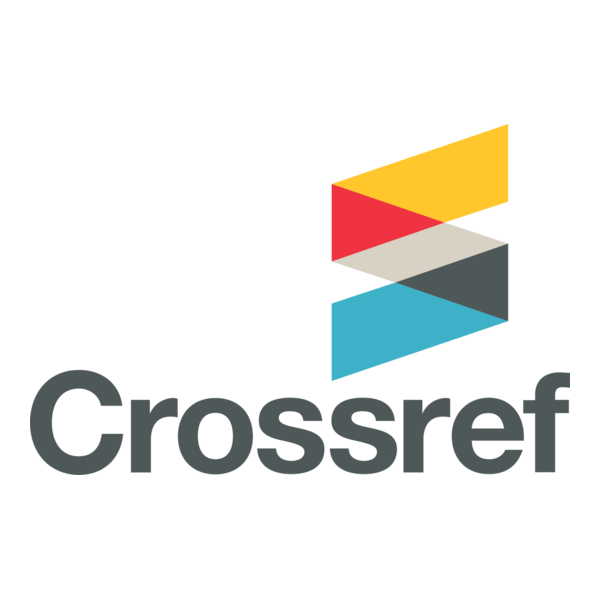Bridging Research and Practice: Using Article Analysis to Prepare Practitioners for Research-Informed Practice
DOI:
https://doi.org/10.37886/ip.2024.003Keywords:
professional doctorate in education, EdD, research-informed practice, researching professionals, professional practiceAbstract
Research Question (RQ): Could a critical analysis of a few relevant research articles prepare practitioners for designing a research-informed improvement of own practice?
Purpose: The purpose of the paper was to both explore and test whether a critical analysis of a few relevant research articles could prepare a practitioner for designing a research-informed improvement of own practice. The critical analysis of two articles was carried out on the topic relevant for the author's professional practice i.e. on developing researching professionals enrolled in the Professional Doctorate in Education (EdD) at a UK-based university.
Method: Some of the features of a systematic literature review were applied to a light version of literature search for relevant articles. The search was limited to social science and educational research databases ERIC (Education Resources Information Center), NFER (National Foundation for Educational Research) own bibliographic databases and CERUK (Current Educational Research in the UK) database to narrow the focus both on educational field and on English-speaking countries thus matching the author’s workplace cultural embeddedness.
Results: The critical analysis of the chosen articles showed how important (a) alignment between research aims and design is, as well as (b) between presented evidence and claims/interpretations. Of particular importance is an insight that, in order to (c) avoid circular arguments, (d) data coding and analysis need to be written and presented more elaborately with (e) careful selection of the illustrative examples. This is even more important when aiming to use published work to support a research-informed improvement of own professional practice within the same field. Furthermore, for the research findings' trustworthiness and transferability into similar professional practices, (f) ethical considerations of insider's research need to be thoroughly explored and transparently presented.
Organization: Organisations with organisational culture which supports and values research could benefit from their employees' engagement in designing and carrying out research-informed improvements of own professional practice.
Society: The contribution to society is achieved through practitioners' application of critical frame to firstly analysing previosuly published work in their field and secondly to designing research-informed improvements of own profesional practice.
Originality: The paper's originality lies in its format as it both explores and tests whether a critical analysis of a few relevant research articles could prepare a practitioner for designing a research-informed improvement of own practice. The author, in her role of educational practitioner, tests whether a critical analysis of two articles could provide her with reflective learning about what to consider when designing and carrying out a research-informed evaluation of her own professional practice.
Limitations / further research: The paper’s scope was limited to a crticial analysis of only two articles with a rather specific focus on developing researching prfoessionals in the field of the Professional Doctorate in Education. Further research into additional factors aiding practitioners in their attempts to introduce research-informed improvements in their professional practices is needed.
References
Bassey, M. (2001). A solution to the problem of generalisation in educational research: Fuzzy prediction. Oxford Review of Education, 27(1), 5- 22.
Boud, D., and Hager, P. (2012). Re-thinking Continuing Professional Development Through Changing Metaphors and Location in Professional Practices. Studies in Continuing Education 34 (1): 17–30.
Bourner, T., Bowden, R. and Laing, S. (2001). ‘Professional Doctorates in England’. Studies in Higher Education, 26(1):65-83.
Buchanan, A.L., and V.M. Hérubel. (1995). The doctor of philosophy degree: A selective annotated bibliography. Westport, CT: Greenwood Press.
Buss, R., Zambo, R., Zambo, D., & R. Williams, T. (2014). Developing researching professionals in an EdD program: From learners and leaders to scholarly and influential practitioners. Higher Education, Skills and Work-based Learning, 4(2):137-160
Butcher, J., & Sieminski, S. (2009). Enhancing professional self-esteem: learners’ journeys on a distance-learning Doctorate in Education (EdD). Enhancing the Learner Experience in Higher Education, 1(1):44-55.
ESRC, Economic and Social Research Council. (2005). Postgraduate training guidelines. Swindon, United Kingdom: Economic and Social Research Council.
Foskett, N. (2010). Markets, government, funding and the marketisation of UK higher education. The marketisation of higher education and the student as consumer, 25-38.
Gibbons, M., Limoges, C., Nowtny, H., Shwartzman, S., Scott, P. & Trow, M. (1994). The new production of knowledge: the dynamics of science and research in contemporary societies. London, Sage.
Greene, J. C. (2007). Mixed methods in social inquiry (Vol. 9). John Wiley & Sons.
Hargreaves, D. (1996). Teaching as a Research-Based Profession: possibilities and prospects. Teacher Training Agency Annual Lecture (London, Teacher Training Agency).
Hemsley-Brown, J. and Sharp, C. (2003). The Use of Research to Improve Professional Practice: a systematic review of the literature, Oxford Review of Education, 29(4): 449-471, DOI: 10.1080/0305498032000153025
Illeris, K. (2002). The Three Dimensions of Learning. Roskilde: Roskilde University Press.
Labaree, D. (2003). The Peculiar Problem of Preparing Educational Researchers. Educational Researcher, 32(4):13-22.
Lester, S. (2004). “Conceptualizing the practitioner doctorate”, Studies in Higher Education, 29(6):757-770.
Lindsay, H., Kerawalla, L. & Floyd, A. (2018). ‘Supporting researching professionals: EdD students’ perceptions of their development needs’. Studies in Higher Education, 43(12): 2321-2335. DOI: 10.1080/03075079.2017.1326025
Malfroy, J. (2003). Knowledge in action: Doctoral programs forging new identities. Journal of Higher Education Policy and Management, 25(2): 119- 129.
Maxwell, T. W., and P. J. Shanahan (1997). ‘Towards a Reconceptualisation of the Doctorate: Issues Arising from Comparative Data Relating to the EdD Degree in Australia’. Studies in Higher Education 22(2): 133–50.
Ottewell, K. and Lim, W.M. (2016). PhD: Been there, Done that – so, why do a (second), professional doctorate? in Burnard, P., Dragovic, T., Flutter, J. and Alderton, J. (2016) (Eds) Transformative Doctoral Research Practices for Professionals, Rotterdam, Sense Publishers
Perry, J. A. (2012). What history reveals about the education doctorate. In Macintyre, M. L. and Wunder, S. (Eds.) Placing practitioner knowledge at the center of teacher education: Rethinking the policies and practices of the education doctorate. (pp. 51-72). Charlotte: Information Age Publishing
Shulman, L.S., Golde, C.M., Bueschel, A.C. and Garabedian, K.J. (2006), Reclaiming education’s doctorates: a critique and a proposal. Educational Researcher, 35(3):25-32.
Servant-Miklos, V. (2020). Problem-oriented project work and problem-based learning:" Mind the gap!". Interdisciplinary Journal of Problem-Based Learning, 14(1).
Sfard, A. (1998). On Two Metaphors for Learning and the Dangers of Choosing Just One. Educational Researcher 27(2):4–13.
Taylor, A. (2007). Learning to Become Researching Professionals: The Case of the Doctorate of Education. International Journal of Teaching and Learning in Higher Education, 19(2):154-166.
Watkins, A. (2006). So what exactly do teacher‐researchers think about doing research? Support for Learning, 21(1):12-18.
Wenger, E. (1998). Communities of Practice: Learning, Meaning and Identity. New York: Cambridge University Press.
Additional Files
Published
How to Cite
Issue
Section
License
Copyright (c) 2024 Tatjana Dragovic

This work is licensed under a Creative Commons Attribution-ShareAlike 4.0 International License.
![]()








